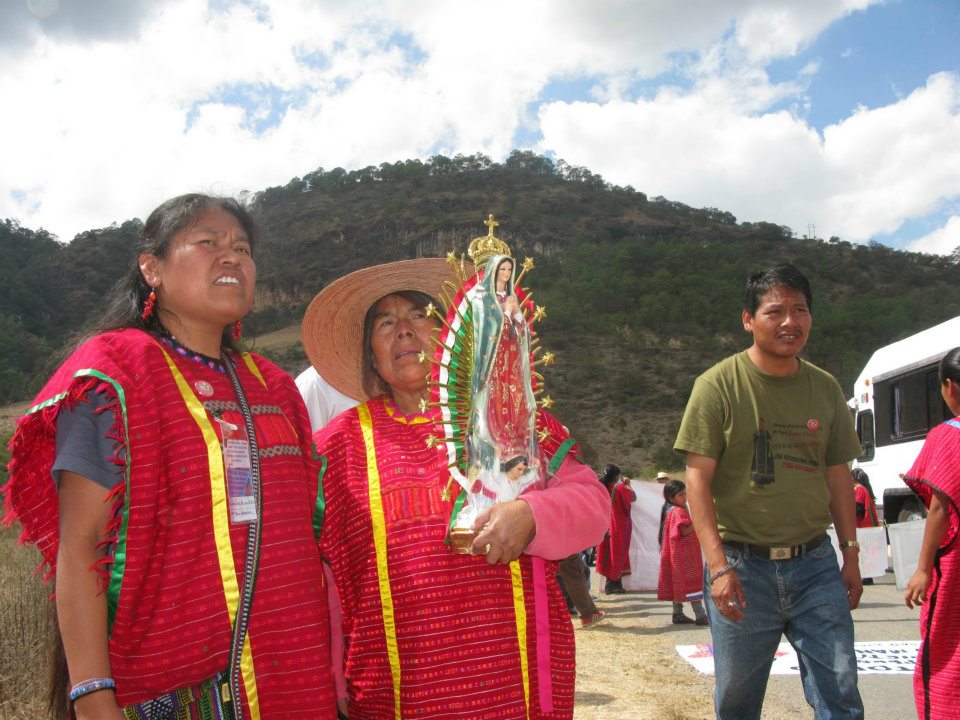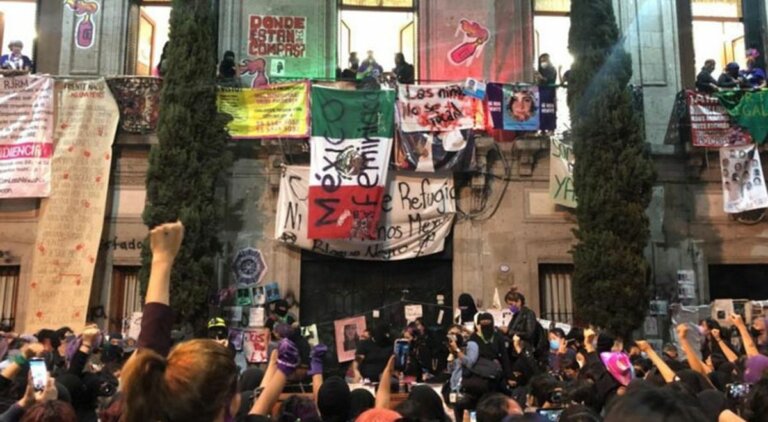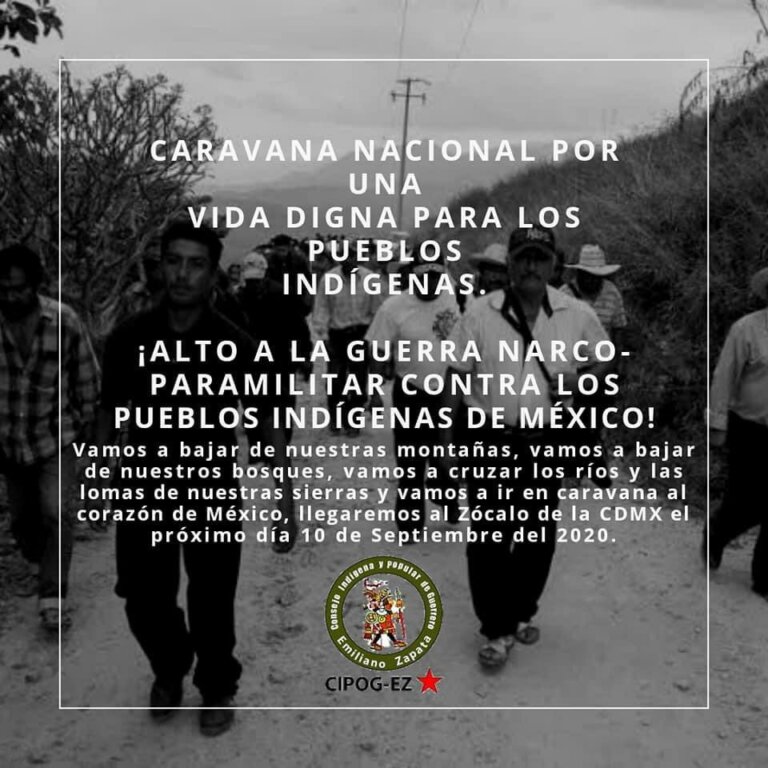David Venegas free! Talks Resume
On Tuesday afternoon David Venegas was released from police custody after his arrest last Sunday. Despite the efforts of Governor Gabino Cue and the corporate media to criminalize him, authorities finally had to admit that they had no evidence against him, making it clear that his arrest was a ploy to disrupt the return to San Juan Copala of the displaced people.
The displaced Triquis are giving the government more time to keep its promise of establishing safe conditions for a return to San Juan Copala. The group of ten Triqui women representing the displaced people have decided to wait until 2 pm Thursday afternoon to go into San Juan Copala and talk with ten representatives of the community now living there. Government officials have agreed to another meeting on precautionary measures beforehand. It is scheduled for Wednesday morning. There is a call for national and international support. A new caravan will leave Mexico City for Copala Wednesday night.
In a taped interview with Proyecto Ambulante on Monday, January 30, Marcos Albino explains the situation:
“….Last Saturday, we had made an agreement with the government that 10 women were going into San Juan Copala to talk to people inside. Their safe entry had been arranged. But on Sunday everything fell through. The government sent different representatives and went so far as to arrest David Venegas, so that we’d have to focus on freeing him and stop concentrating on the return. But now we’ve given them more time. If they don’t keep their promises to arrest certain paramilitaries and establish safe conditions by Thursday at 2 o’clock in the afternoon, the compañeras will go on into Copala even without government support. On Wednesday we want discussions about the precautionary measures. We aren’t going to provoke anything, but we’re going to keep on resisting and trying to create safe conditions for the compañeras.
We’ve received information that the community inside San Juan Copala was expecting the women and that they had cleaned up the houses of the displaced people and were ready to welcome them.
I think the government officials didn’t want to resolve the conflict. Instead, they wanted to create more problems between Triqui sisters and brothers, the way the State has always done, the way some functionaries and the local power bosses have always done. But the information we got was not that they were waiting for us. The information we got was that they didn’t want to see us….
Some people find it hard to understand that this movement is never going to be sold out in the negotiations. We’re taking it step by step to create safe conditions.
Today we heard…that a peaceful attitude exists in the community and that the authorities are inviting the women to come in, saying that they’ll be safe and that there won’t be a confrontation….
We’re trying to evaluate the situation as we go along. What we want is justice. We know from our past experience that agreements can be broken and people can betray us, and we know what paramilitary violence is from our own experience. We hope we can expect national and international solidarity, and that people will stay tuned to the situation and express their support. We want to resolve this peacefully. We want justice and an end to impunity and the complicity of government officials with the killers”.



